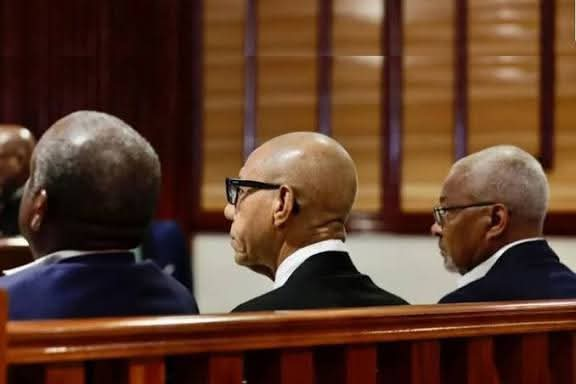Absolvição de “Kopelipa” e condenação de “Dino” revela dois pesos e duas medidas, afirma jurista – Correio da Kianda
O mediático julgamento que envolve antigos homens fortes da presidência de José Eduardo dos Santos, chegou ao fim. O Tribunal Supremo absolveu nesta segunda-feira, 17, o general Manuel Hélder Vieira Dias “Kopelipa” de todos os crimes que lhe forma imputados, e condenou outro general, Leopoldino Fragoso do Nascimento “Dino” a cinco anos e seis meses de prisão por branqueamento de capitais e outros crimes.
O jurista Salvador Freire disse, à Rádio Correio da Kianda, ver “o acórdão como uma piada”, por entender que os dois foram indiciados nos mesmos crimes, enquanto co-arguido no mesmo processo, e questionou por que razão condenar um e absorver o outro.
O também advogado referiu ainda que o acórdão pode ter respaldo em caso de se comprovar o desaparecimento dos documentos que sustentavam os factos criminais dos actos de que era indiciados, mesmo assim, “acha que há dois pesos e duas medidas”, concluiu dizendo que “o tribunal andou mal”.
Já, outro jurista Luís Van-Duném, é de opinião que o Tribunal Supremo é soberano nas decisões que toma, pelo que, os advogados têm a oportunidade de fazer recurso, caso tenham motivos suficientes. Mas, a sociedade pensa que “existe um sentimento de desalento na justiça com absolvição do general Kopelipa”.
Os generais “Kopelipa e Dino”, estavam implicados em crimes de peculato, burla por defraudação, falsificação de documentos, associação criminosa, abuso de poder, branqueamento de capitais e tráfico de influência.
Foram igualmente condenados o cidadão chinês Yiu Haiming a quatro anos e seis meses de prisão e o advogado Fernando Gomes dos Santos a três anos e seis meses.
As empresas China International Fund (CIF), Plansmart International Limited e Utter Right International Limited foram condenadas ao pagamento de mil dias de multa à razão de cinco mil dólares por dia.
O general “Dino”, foi condenado pelos crimes de falsificação de documentos, branqueamento de capitais, tráfico de influência e burla por defraudação, entretanto, a defesa pediu efeito suspensivo da pena, bem como os defensores dos restantes arguidos condenados.
Crédito: Link de origem



Comments are closed.